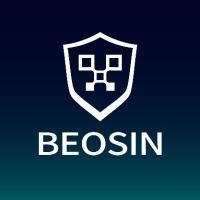Where will the explosive Damus take Web3?
Author: Beosin
After ChatGPT, a new social product called Damus has recently become a sensation.
On February 1, 2023, Twitter co-founder and former CEO Jack Dorsey tweeted that the social product Damus, based on the decentralized social media protocol Nostr, has been launched on the Apple App Store and is available for anyone to download.
Jack Dorsey also publicly shared his Nostr public key in his personal social media signature, calling it "a milestone for open protocols."

Shortly after, on the afternoon of February 1, many people's social platforms suddenly displayed a series of mysterious codes. This was followed by a brief "cipher."

This also became the first "hot spot" in the Web3 field in 2023.
What is the popular Damus in 2023?
Last year, Twitter co-founder Jack Dorsey spent 14 bitcoins (approximately $245,000 at the time) to fund the development of the open decentralized social network protocol Nostr based on cryptographic key pairs.
According to the Nostr official website, Damus is just one of several Nostr projects currently in development.

On its official website, Damus positions itself as The social network you control, meaning "a social network controlled by you," where users have control over their accounts, data, and all potential values, echoing the core spirit emphasized by Web3.
It is understood that the Damus product opened for internal testing in April 2022 and is currently available for download on iPhone, iPad, and Google Play, allowing users to create accounts directly with just their preferred username, without needing phone numbers, emails, names, or other personal information.

We tried it out, entering a username without needing phone numbers, emails, names, or other personal information, and it was done in five seconds.
Beosin has also registered a Damus account, and everyone can search for "cipher" to follow us:
npub1ra26qkz70004mayv6qdgvfsd069q5grxtlxqs4qv3kck64ldehzq4n3jzn
Click the search icon at the bottom of the homepage, copy Beosin's public key ID, and click Goto profile to add friends.

Overall, the Damus page design is simple and elegant, but many features are somewhat rough and incomplete, such as not supporting style editing for posts, inability to delete after posting, inability to undo likes or retweets, and images needing to be converted to links before posting. Additionally, advanced needs like trends and filters are urgently needed.
What is the biggest difference between Damus and other social platforms?
It is understood that this app does not rely on centralized server deployment but is built on the decentralized social protocol "Nostr."
Nostr stands for "Notes and Other Stuff Transmitted by Relays," which can be understood as a relay transmission protocol for social media information.
This is an open protocol aimed at creating a globally censorship-resistant social network. It is not a single website but a network composed of thousands of users who can publish to each other's relay servers, which can seamlessly interact with one another.
In simple terms, each user on the Nostr protocol runs a client, which can be a native client, web client, etc. To publish certain content, users only need to sign it with their personal key and send it to multiple relays (servers hosted by others or themselves) to complete the publication. To receive updates from others, this is also achieved by accessing relays.
Nostr emphasizes its non-censorship policy: no supervising party controls what content is allowed or not allowed. Nostr is relay-based, and the Damus application using this protocol only provides recommended content and pops up more new messages during subsequent use.
This gives Damus features like no registration and encryption, maximizing user privacy and freedom.
For example, Twitter acknowledges that it collects user purchase records, contact information, browsing history usage data, location, user content, identity, search history, diagnostics, and other data, while Damus directly states that the developers will not collect any data through this application.

Will Damus drive the next step in Web3 development?
Currently, practitioners in the cryptocurrency industry have higher expectations for Web3, hoping it can break the monopoly of traditional internet giants and create a brand new free world.
However, the so-called "freedom" often has its opposites, such as the "censorship resistance" mentioned above, which also exists in two extremes, and various junk and violent information have already appeared on Damus.
Regarding this situation, Damus founder William Casarin revealed during Twitter interactions that a keyword filtering feature will soon be launched to block junk information on the homepage in response to recent issues like bot spam attacks on Damus.


On February 3, the decentralized social network application Damus based on the Nostr protocol was removed from the App Store in mainland China. Damus logged onto the App Store on February 1 and within less than two days reached the top ten free social apps in the US App Store, surpassing well-known social applications like Signal, WeChat, and Line.

Whether the Nostr protocol can succeed remains to be seen, but while Damus has sparked significant controversy on mainstream social networks like Twitter and Facebook, it undoubtedly brings us new and quite interesting options. At the same time, it may also drive the next step in Web3 development.










